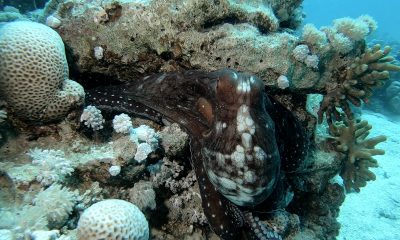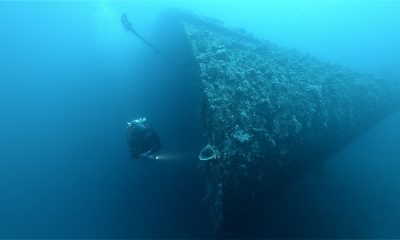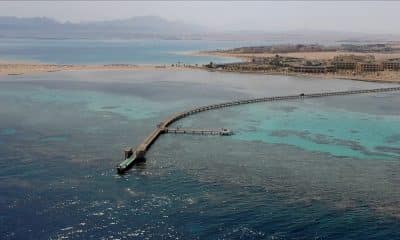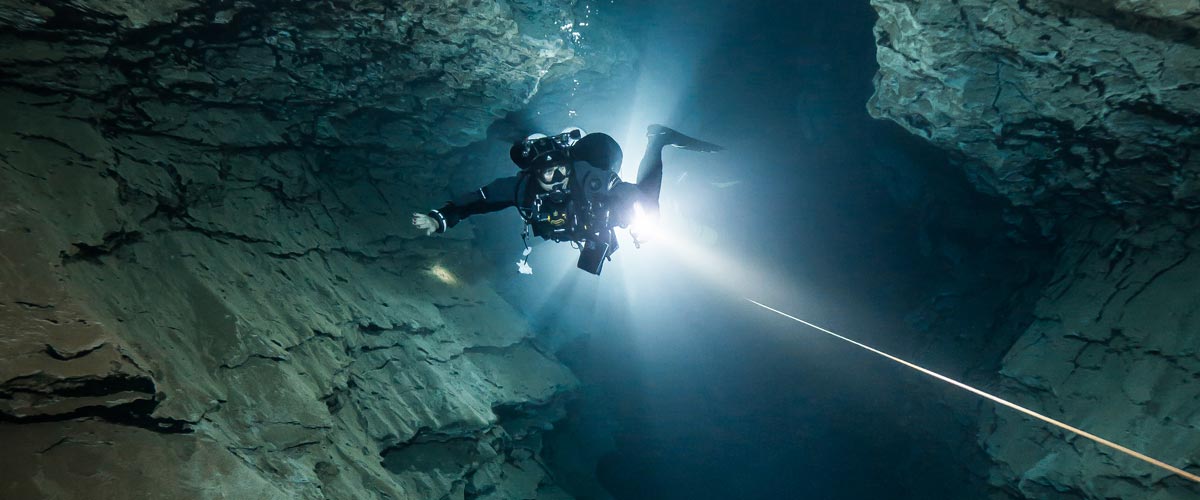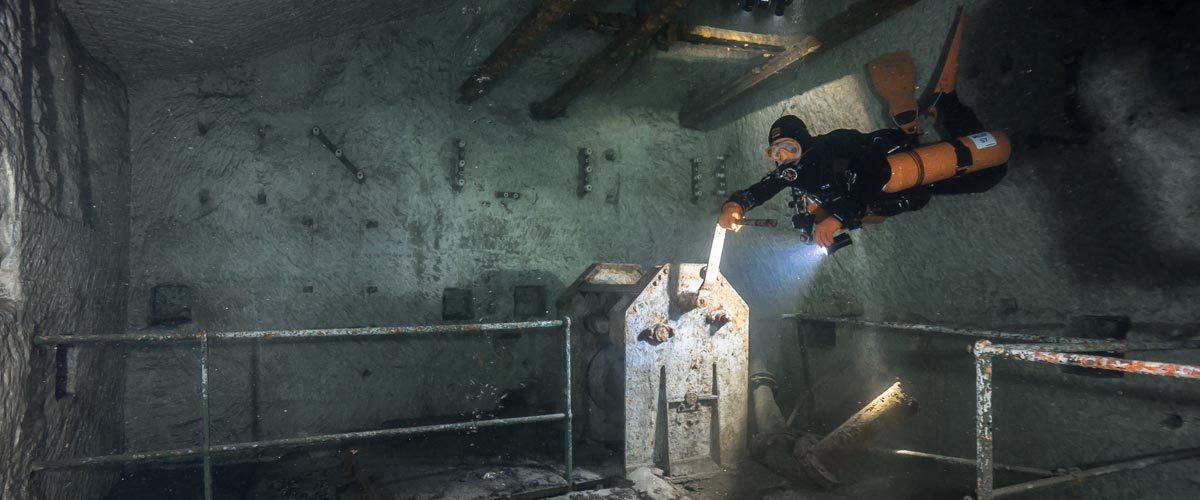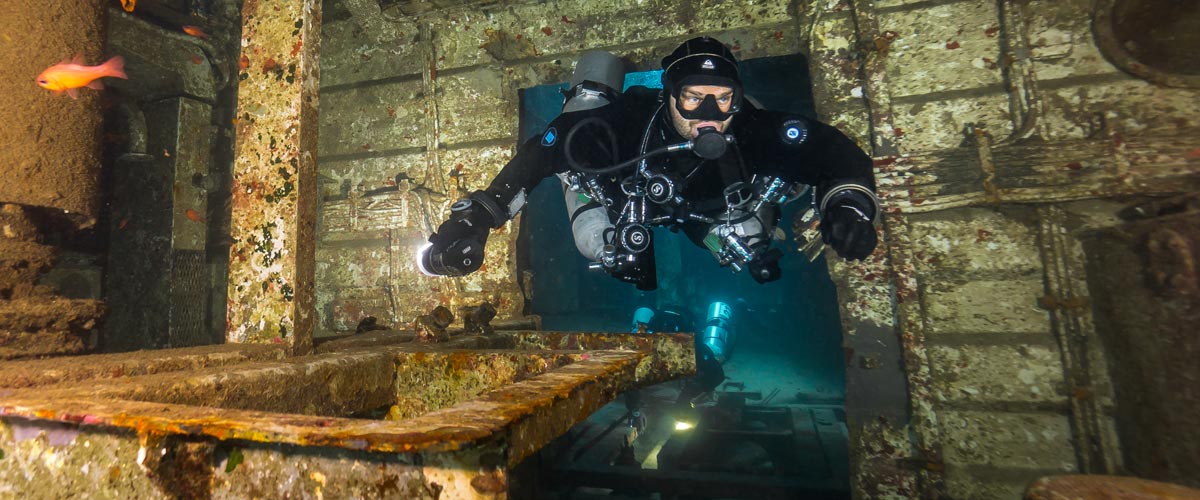Dive Training Blogs
Diving and Children: Responding to Individual Needs
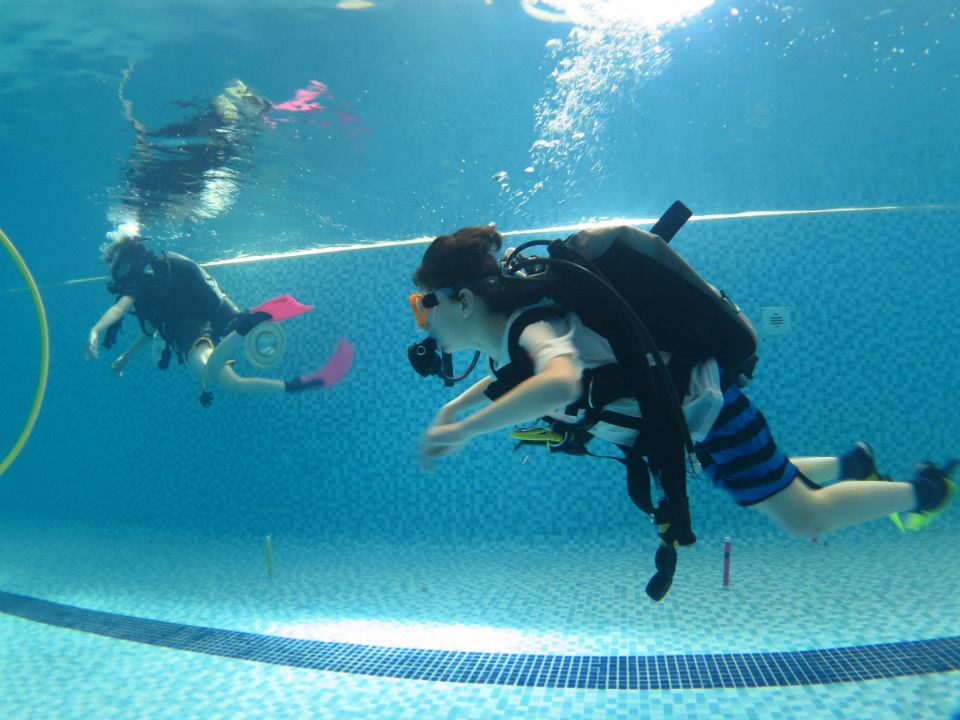
PADI MSDT Maryse Dare continues her Scubaverse blog with part three about responding to individual needs…
Scuba diving is a wonderful activity with many therapeutic effects. However is it suitable for all children?
We are all used to signing off the medical certificate but what if there is something that isn’t covered in the magic tick list? The “behavioural” question is fairly open to interpretation so it may be that you have a further conversation with the parent and it is always important to be open and honest in conversation. The child may succeed in a very confined environment such as a pool, but what about in open water and more importantly, what about after certification?
There are a range of different needs that we have worked with. I am fortunate as I trained and worked as a teacher for twenty years, including working closely with children with additional needs. I am not, however, qualified to assess a child for a condition. This post, therefore, is based only on my experience.
We have worked with several children who are on the autistic spectrum. In only one case, we (the parent and instructor) have decided that diving is not for that child. There are a few children and parents who have decided that they enjoy the time in the pool and do not want to go into open water. And then we have several other children who are developing into superb divers and scuba diving may well be a significant part of their lives for years to come.
We have had to adapt our communication, although reflecting on this is never a bad thing for anyone. I recently worked with a child that took everything literally. If you reflect on instructor training, we were encouraged to link the dive experiences to other experiences. This can lead to confusion and I have found that this child responds well to just being told the diving instructions and to have them clear and bullet pointed. He needs to have everything told to him just once. When he started diving I was worried that he was not retaining any information but we recently did a refresher of all skills covered to date and he not only completed them, but could also gave me my original briefing verbatim. This led to further reflection; I need to be very careful about what I say!
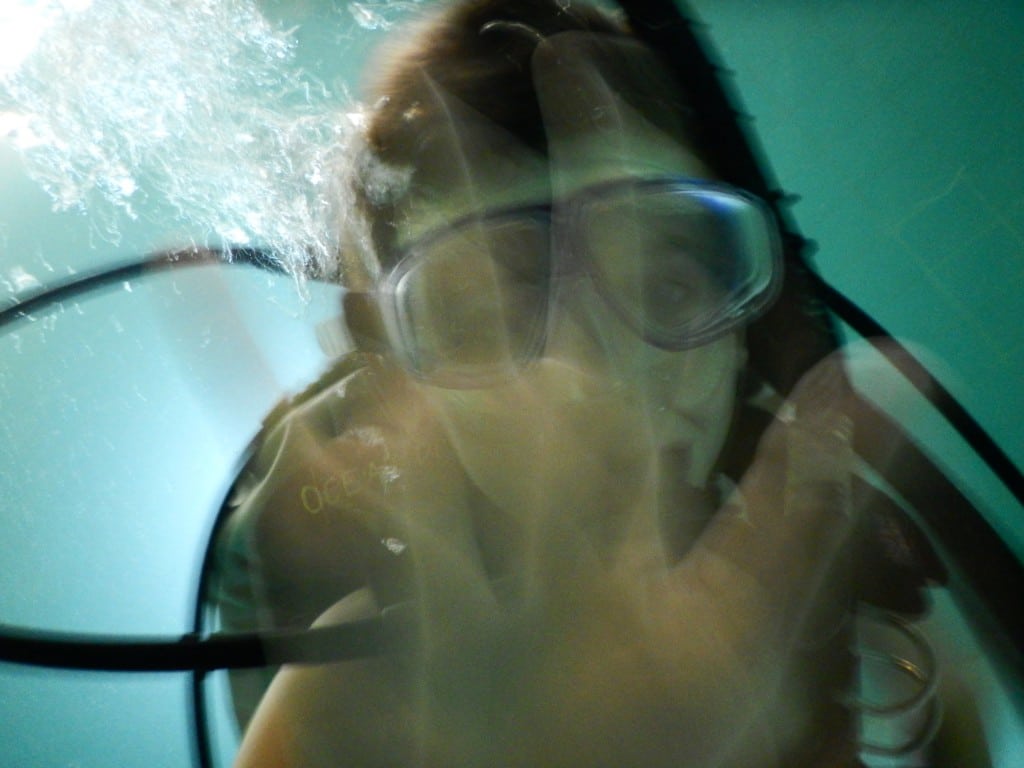
I have dived, in the past, with a non-hearing adult. I do not sign, although if I knew BSL it may not have helped anyway as they were not British! However, through slow and careful speech she was able to lip read and we could agree on our hand signals. Underwater, our speech became equal; in fact she was at an advantage as she was far better at nonverbal communication.
We have also worked with children with behavioural issues. The limited attention span can be difficult to manage so we break up the learning into many small activities. In some cases we have found that their concentration in the water is greater than out of the water. We are waiting to see if these benefits start to spread beyond their diving. I have had two children whose behaviour and concentration means that we are not ready to move into open water yet. When we do, we will complete only one or two dives and they will not be signed off for their Scuba Diver until they have met the requirements and I feel comfortable that they will be safe to dive under supervision (which they would have to do anyway because of age restrictions). We will then move on with the second half of the open water dives.
With children we always start with a try dive. Through this we can decide if we can work safely with the child and if they can be safe in the water. If the child responds well then we start with the Seal Team so we are not certifying the child for diving independently in later years, which gives further time to assess the ability to dive independently. As PADI instructors we are required to work to standards but ultimately if a person cannot complete the final open water dive then they are not meeting the standards required to achieve full certification. I assume this applies to other training agencies too.
The most important thing is to ensure you’re not promising to certify a child. Too many people think that their pounds are paying for an open water card. That’s not the case; the money is paying for the usual level of tuition (and perhaps a bit more) given for a person to support them to reach certification. Certification is not guaranteed.
Being open to working with children with additional needs can be just about removing barriers. Scuba diving has amazing benefits, and by adapting what we do as professionals we can ensure we open it up to people who may benefit even more from diving than others. An added bonus for us as instructors is it makes us reflect on our own practice and teaching skills, and this can only help us too.
You can follow Maryse and her Dive Club / School at www.oceandiver.co.uk and www.facebook.com/OceanDiver.co.uk.
Blogs
Intro to Tech: What is it about?
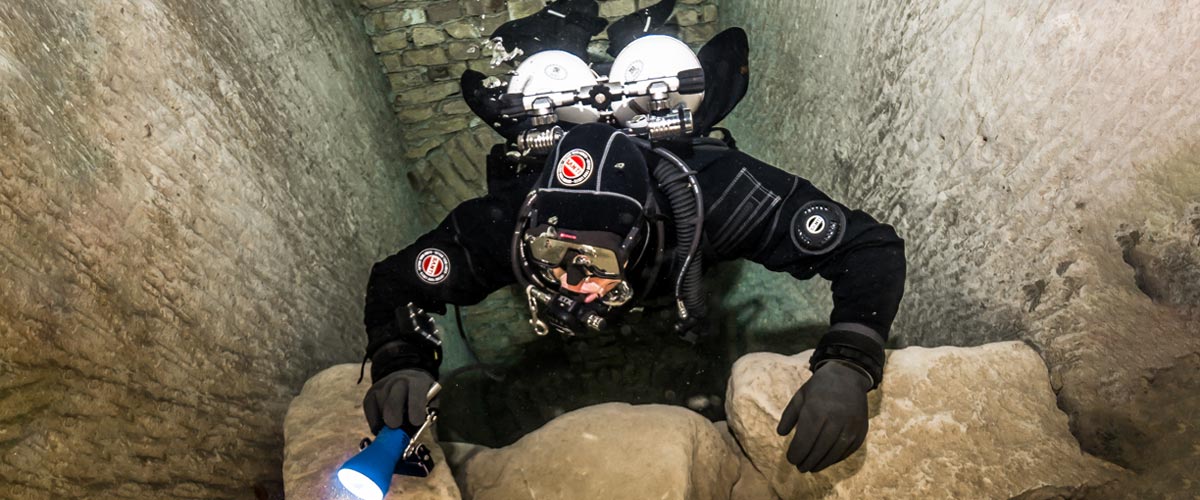
Article by José Pablo Mir
Pictures by Cezary Abramowski
The world of technical diving is exciting. It opens the door to new sites, depths, and bottom times. More importantly, it opens our minds to a new way of planning, facing, and experiencing dives, even those not purely technical.
Becoming a technical diver is a process, and like in other aspects of life, we should find the proper entry point that suits us best based on our knowledge and experience. The Introduction to Technical Diving course from TDI -the world’s largest and most recognized technical diving teaching organization- is the best option for divers who have yet to gain experience in the fundamental aspects of this new practice. The course’s content and its embrace of new techniques and technologies make it possible to acquire a solid foundation to learn and gain experience in this practice properly.
Becoming a technical diver is not something that happens overnight, whether deciding to become one or receiving a certification card stating we are now technical divers. It is a slow process extending farther away than any introductory course. It requires effort and dedication. But it will bring us satisfaction from day one -or two.
It is a matter of mentality
First, we must understand and accept that technical diving, involving greater depths, longer bottom times, exotic gases, virtual or real ceilings, and more, comes with higher levels of risk than the sport diving we have been practicing until now.
Although this discussion usually starts with a warning about risks, as I’ve done in the previous sentence, our practice is not a game of chance.
Technical diving is a rational activity that requires maturity and good judgment, and we will put everything into ensuring that each dive is a successful one -meaning we return from it safe and sound. With this understanding, we will strive to establish a mental attitude more aligned with our practice and its realities.
This new “technical diver” mindset we will develop will lead us to be more cautious in our executions, more analytical in our plans, more rational in our strategies, and more detailed in our procedures.
Experience will keep teaching us to know ourselves better, to keep our anxiety and other emotions under control, and to manage our impulses. Over time, our senses will sharpen, and we will be more attentive to the particulars of the situation we find ourselves in.
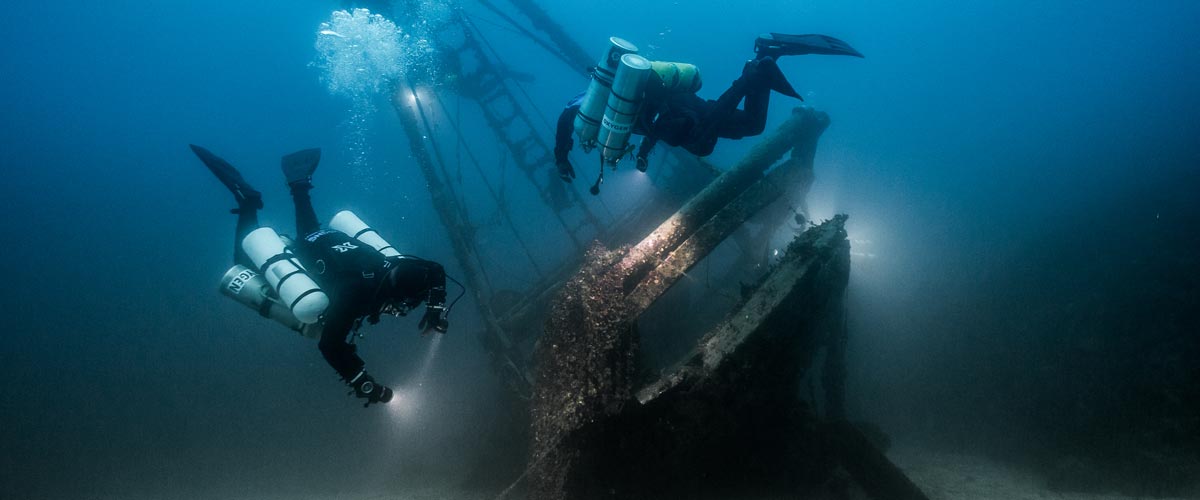
Strategies and procedures
Our strategies, those broad guiding lines tracing the path to follow, from how to approach planning to where, with what, and how we are willing to get there, will be more specific and more practical. Not because they magically become so, but because we will consciously and deliberately frame them that way.
We will establish clear, concise, and realistic procedures. Not only for the undesirable situations that may present themselves but also for those that are part of our dive objectives.
Even though, as technical divers, we often use equipment different from what we were previously accustomed to, it is essential to note that the gear does not make the diver. In a way, we could consider such equipment as the necessary tools to implement what our goal seeks to achieve, according to our strategies and procedures.
Technique plays an important role
We must put our greatest effort into learning and perfecting the different techniques we will be acquiring. Buoyancy, trim, propulsion, cylinder handling, deploying DSMBs and lift bags, valve drills, and more are essential skills we must begin to master to progress in our art. What we cannot do, when we need to do it, can harm us.
Our techniques must be effective and achieve the purpose for which they were devised. But they must also be efficient and require the least resources possible, including the time they take and the effort they demand. Effectiveness and efficiency will prevail over beauty and other considerations that may come to mind, although none of them should be mutually exclusive. A technique executed efficiently and effectively tends to have an inherent beauty.
Refining techniques is a lifelong mission. Some of them will be easy to master from the go; others, on the other hand, will be our life mission and will require many repetitions just to resemble the idea we have in mind of how they should be executed.
We must consider the environment
Our learning, the needs and musts of the practice we engage in, the experience we gradually gain, our strategies and procedures, and even our equipment and tools change with the environment.
Diving in the ocean, everything about us must be suitable for ocean dives. Conditions there rarely emulate those found in a pool, lake, or river. Variable winds and currents, greater depths, visibility conditions, other divers with uncertain skills around us, marine life, maritime traffic, distance from the coast, and many other factors add complexity and uncertainty.
It is never necessary to master the pool on the first day, but planning and aspiring to gradually cope with the ocean’s conditions is essential.
The cost of good training
We are aware that our resources are often scarce in relation to the possibilities of use we could give them if they were not. To a greater or lesser extent, we are part of the economic reality in which we are embedded.
Fortunately, the cost of good technical diver training is not an entry barrier. Comparing training and equipment costs, we see that the former are generally lower. Yes, lower cost for personalized service, essential to our future
performance and safety, than for a series of mass-produced products that are mere, albeit necessary, tools for an end.
The value of good training
The value of the training we received encompasses a range of characteristics, from emotional and methodological to technical and technological. TDI and its Introduction to Technical Diving course offer a deep and modern approach, with a teaching strategy that aims to create thinking divers, not merely obedient ones.
As technical divers, our knowledge is our primary tool. In this type of activity, what we don’t know can harm us.
Is this course optional?
Unfortunately, the fact that this Introduction to Technical Diving course is not a prerequisite for any subsequent training is an invitation to consider it optional. And we all know what usually happens to “optional” under budget constraints.
However, this course should be seen as optional only by those divers who are somehow familiar with the use of technical equipment, who have a mindset more in line with the requirements of this type of diving, who plan and execute the dives the proper “technical” way, who know their gas consumption rate, who are not intimidated by non-decompression tables, who feel comfortable using their dive computers, and know the techniques and have at least an acceptable level of buoyancy, positioning, and propulsion. Those can go straight to a more advanced training course, such as TDI’s Advanced Nitrox.
We must ask ourselves whether or not we are in that group.
Remember our goal: to have fun
Recreational diving is our passion. Jumping into the water carrying heavy equipment and having properly dotted our I’s and crossed our T’s have only one ultimate goal: fun. This is the activity we have chosen as a hobby. We must enjoy it; it must give us pleasure and make us vibrate.
Having a good time is not optional!
Blogs
Four opportunities to go pro in 2024 with Dive Friends Bonaire
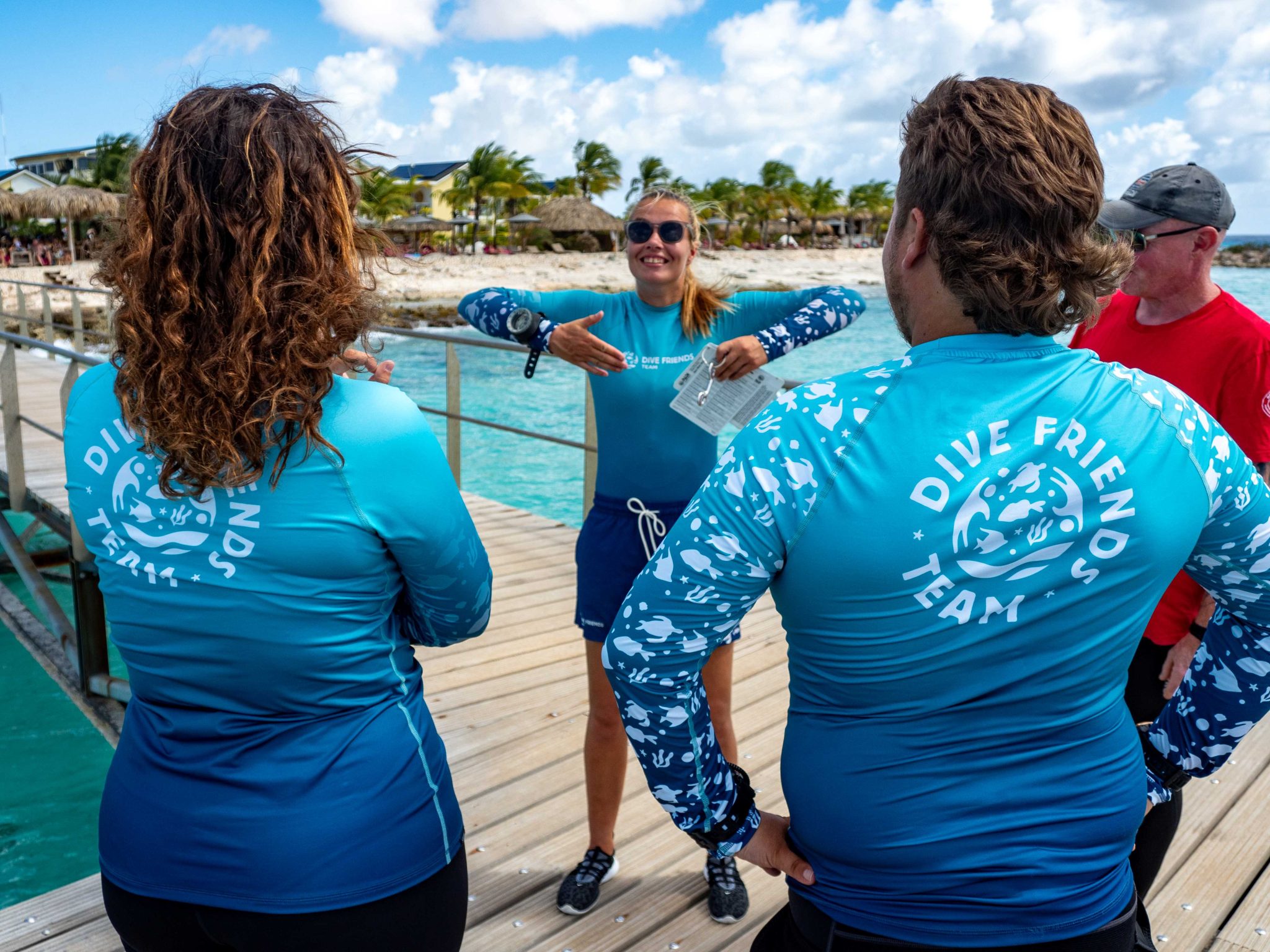
Dive Friends teaches the Instructor Development Course (IDC) several times a year to students who are eager to share their passion for diving with the world.
Dive Friends is known for the personal approach throughout the course. Their in-house course director will lead the students through every essential step, mentoring them to achieve their fullest potential as a dive instructor.
Applications for the following IDC start dates are now open:
- 12 April
- 5 July,
- 20 September
- 29 November
Partnership with Casita Palma
If the student opts for the IDC-Deluxe or IDC-Supreme package, their accommodation will be arranged for them at Casita Palma. This small and quiet resort is within walking distance from Dive Friends Bonaire’s main dive shop location and has everything you need to relax after an intense day of IDC training. Breakfast is included, so the student will always be fuelled and ready for their day.
Contact Dive Friends Bonaire’s Course Director Eddy for more information: coursedirector@divefriendsbonaire.com.
-

 News3 months ago
News3 months agoHone your underwater photography skills with Alphamarine Photography at Red Sea Diving Safari in March
-

 News2 months ago
News2 months agoCapturing Critters in Lembeh Underwater Photography Workshop 2024: Event Roundup
-

 Marine Life & Conservation Blogs2 months ago
Marine Life & Conservation Blogs2 months agoCreature Feature: Swell Sharks
-

 Blogs2 months ago
Blogs2 months agoMurex Resorts: Passport to Paradise!
-

 Blogs2 months ago
Blogs2 months agoDiver Discovering Whale Skeletons Beneath Ice Judged World’s Best Underwater Photograph
-

 Gear News3 months ago
Gear News3 months agoBare X-Mission Drysuit: Ideal for Both Technical and Recreational Divers
-

 Gear Reviews2 months ago
Gear Reviews2 months agoGear Review: Oceanic+ Dive Housing for iPhone
-

 Marine Life & Conservation2 months ago
Marine Life & Conservation2 months agoSave the Manatee Club launches brand new webcams at Silver Springs State Park, Florida









